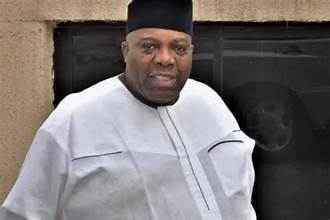Dr. Doyin Okupe, who previously served as the Director-General for Peter Obi’s presidential campaign, has attributed Alhaji Atiku Abubakar’s defeat in the 2023 presidential election to geopolitical factors and the ongoing debate over power rotation between the North and South.
In a recent interview, Okupe argued that it would be unjust for the North to reclaim power in 2027, asserting that the South should be allowed to fulfill its eight-year term. He acknowledged Atiku’s qualifications but suggested that his candidacy would encounter the same hurdles as it did in the previous election.
Okupe pointed out that Atiku’s campaign was viewed as a challenge to the established North-South power rotation, which he believes played a significant role in the former vice president’s loss.
He stated, “Atiku’s defeat in 2023 wasn’t due to his character or capabilities. Rather, there was a widespread sentiment that a northern Muslim should not succeed another northern Muslim after eight years in office.”

While Okupe noted that Atiku has every right to run in 2027, he emphasized that the principle of power rotation remains relevant, particularly as a Southerner would have only completed a four-year term by then, warranting another four years.
“It’s not inscribed in the constitution, but there is a consensus that after a Northerner serves eight years, it should be the turn of a Southerner. Therefore, the North cannot abruptly end the South’s tenure in 2027; that approach is impractical,” he stated in his comments to NAN.
These remarks come as discussions intensify among stakeholders from both the North and South in preparation for the upcoming 2027 general elections. Okupe reiterated that while Atiku Abubakar, the 2023 presidential candidate for the Peoples Democratic Party (PDP), is highly qualified for another run, he believes that Northern aspirants should reconsider their ambitions to promote national unity.
He concluded by reiterating that Atiku’s potential candidacy would likely face the same opposition as in 2023, stemming from perceptions of disrupting the North-South power balance.




